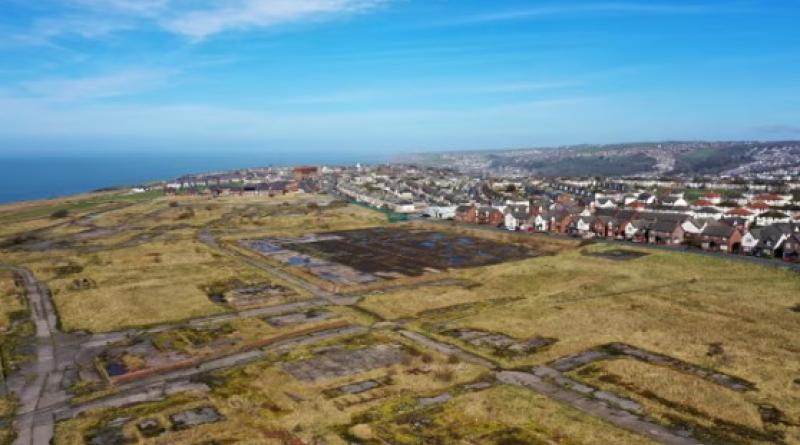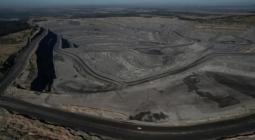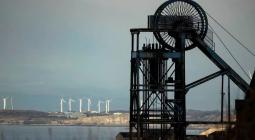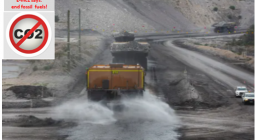Allowing Cumbria coalmine was ‘disaster’ for climate diplomacy, says Lord Turner

Former chair of climate change committee says UK’s decision has encouraged other countries to keep exploiting fossil fuels
The UK’s decision to open a new coalmine in Cumbria was a “disaster” that encouraged other countries to press ahead with fossil fuels, and the continued expansion of North Sea oil and gas is likely to continue the harm, a former chief adviser to the government has said.
Other countries are using the UK as an excuse for pressing ahead with fossil fuel projects despite their climate commitments, according to Adair Turner, the first chair of the Committee on Climate Change and a former head of the CBI.
Lord Turner told the Guardian that he had “literally been involved in discussions” in China and India where UK decisions had been given as a reason for not moving faster on the climate.
“I can tell you that [the Cumbrian coalmine] was a disaster globally, and in China and India, where I was engaged in debates [on reducing greenhouse gas emissions], I have had people say ‘yeah, but you’re building a new coalmine in the UK’,” he said.
“So that was a disaster for our reputation, and it provides arguments for the people within government or within interest groups in China and India to say ‘oh look, the UK is supposedly committed to net zero, but it’s not serious, it’s building a new coalmine’. And the same occurs with new oil and gas fields in the North Sea.”
Turner is now chair of the Energy Transitions Commission (ETC), a thinktank that on Thursday published a report that says the production of and demand for fossil fuels must be reduced rapidly, and that this is achievable. “Unabated” fossil fuel use must be phased out, and there is only limited scope for the use of carbon capture and storage (CCS), the report finds.
There is no need for any exploration of new oil and gas fields to meet the limited need for fossil fuel in the future, the authors say.
At least 65% of all oil and gas reserves and 90% of all coal reserves must be left in the ground to have any chance of limiting global temperature rises to 1.5C above pre-industrial levels, the report finds. Oil use must fall by between 75% and 95% by 2050, gas use by between 55% and 70% and coal use by between 80% and 85%, compared with 2022 levels.
The possibility of using CCS and other technologies to remove carbon dioxide from the atmosphere “cannot be used to justify business as usual for fossil fuel production”, the report says.
The ETC did not break down its advice to specific countries, but Turner said it must apply to the UK. “It’s extremely poor for the UK’s reputation that we are continuing to agree that coalmine in Cumbria, and to agree oil and gas in the North Sea,” he said. “We haven’t run the precise figures for the rundown of the North Sea, but the clear implication is that there is no need for new exploration in the North Sea.”
The government delayed a decision on whether to allow a new mine for coking coal to be opened in Cumbria until after the Cop26 UN climate summit that it hosted in Glasgow in 2021, but last December gave it the green light. Last week, in the king’s speech, the government announced plans to stipulate new annual licensing rounds for oil and gas fields in the North Sea.
Any national strategy to exploit a country’s fossil fuel reserves to the greatest extent is not compatible with the 1.5C limit, the ETC report finds. Rishi Sunak has repeatedly vowed to “max out” the North Sea.
While the UK’s reserves in the North Sea are small in international terms, Turner said the impact of the UK’s actions was felt around the world, particularly in developing countries where much of the future exploitation of fossil fuels is likely to take place.
He said: “If a rich developed nation like the UK says ‘yes, but we’re still going to develop our fossil fuel resources’, it does undermine our reputation and it undermines one’s ability to argue for forceful action in other countries of the world.”
Ed Miliband, the shadow energy secretary, said: “This report is further proof that the best route to lower bills and energy independence is by making the UK a clean energy superpower. The Conservatives have no plan for energy security, have admitted they have no plan to cut energy bills, and are totally wrong on the climate crisis. Instead, this government will leave Britain exposed to the dictators who control fossil fuel markets.”
A Department for Energy Security and Net Zero spokesperson said: “The UK is a global leader on climate action - we have cut emissions faster than any other major country and have set into law one of the most ambitious emissions targets in the world. As shown by the independent Climate Change Committee, we will need oil and gas even as we reach net zero in 2050. Domestic gas production generates a quarter of the emissions of liquefied natural gas imports, and new oil and gas licenses will support UK jobs, attract investment, increase tax revenues, and support the skills needed for the green transition.
“We will continue to meet our international commitments under the Paris Agreement, while embracing the opportunities of clean industries, protecting national security and bringing down energy bills in the long term.”
Photograph: Christopher Furlong/Getty Images - The old Woodhouse colliery site in Cumbria where the government approved the new mine last year.





